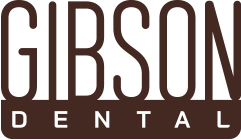
How to Avoid Gum Disease

Gum disease is a common but serious oral health issue that can lead to pain, swelling, and even tooth loss if left untreated. The good news is that with the right care and attention, it’s possible to protect your gums and maintain a healthy smile. Whether you’re looking to focus on or are seeking effective treatments, our Hilliard, OH, dentist can help you take the first move toward better oral health.
Here’s what you need to know about the condition plus how you can take charge of your gum health and keep your smile in top shape.
Symptoms of Gum Disease
Unfortunately for many, gum disease often starts quietly. However, if you’re able to recognize the early symptoms, you can make a significant difference in terms of possible reversal and treatment. The most common include:
- Tender, swollen, red, or bleeding gums
- Constant bad breath or bad taste in mouth
- Loose teeth
- Pain while chewing
- Gum recession (pulling away from teeth)
- Deep pockets or pus between teeth and gums
If you experience any of these symptoms, it’s crucial that you contact our Hilliard, OH, dental office promptly, as early intervention can prevent further damage and restore your gum health.
What Are the Main Causes of Gum Disease?
Gum disease is caused by untreated plaque buildup on the surface of your teeth and gums. When the bacteria in plaque consumes sugar and starch left inside your mouth, it produces acid that erodes tooth enamel. You have a higher risk of gum disease if you neglect your oral health by not brushing your teeth at least twice a day and flossing once daily.
Read More → 5 Ways You Can Prevent Gum Disease
You may also have a higher risk of gum disease if you don’t see Dr. Gibson every 6 months for a routine teeth cleaning and oral examination. During your appointment, we can spot the early signs of gum disease so you have a better chance of being able to protect your oral health.
There are three factors that affect your prognosis for gum disease: what you do at home, what Dr. Gibson does for you, and your genetics. Working with our dentist can help you control at least two of these factors.
Can Gum Disease Be Reversed?
Early gum disease (also called gingivitis) can be reversed by adopting good oral hygiene habits and seeing our dentist every 6 months for a cleaning and exam. During your appointment, we’ll be able to remove plaque and tartar and monitor your oral health. However, it’s important that you brush your teeth at least twice a day and floss once daily to keep plaque at bay.
Advanced gum disease (also called ) cannot be reversed. However, Dr. Gibson is able to mitigate the damaging effects of periodontitis through . Periodontal treatment can help you avoid some of the more serious side effects, such as receding gums and tooth loss.
What Is Scaling and Root Planing?
A common procedure used to treat gum disease, scaling and root planing is an in-depth cleaning performed by our dentist using handheld dental tools. Like the name implies, this procedure involves two main components. Scaling is what removes the plaque and tartar from below the gumline. Root planing then helps smooth out the tooth root which facilitates the reattachment of the gums to the tooth.
As gum disease progresses, deep pockets form between your gums and teeth. Once plaque has entered into these pockets, brushing will no longer suffice. This is where scaling and root planing comes into play. Our dentist will recommend the procedure to prevent any bone or tooth loss.
Schedule Your Appointment Today
It is possible to prevent and even reverse gum disease in its early stages. If needed, however, Dr. Adam Gibson offers scaling and root planing to help patients mitigate the damaging effects of gum disease. To request an appointment with our , call Gibson Dental at (614) 878-9562.
This blog post has been updated.
